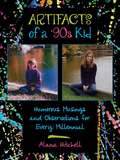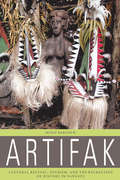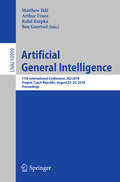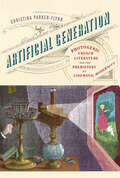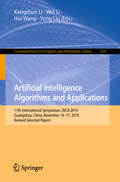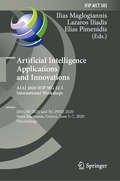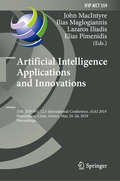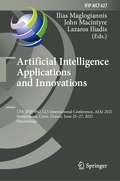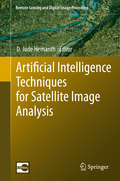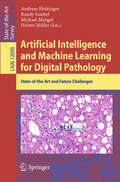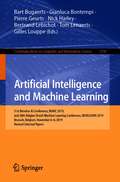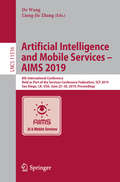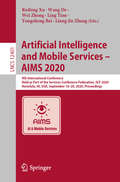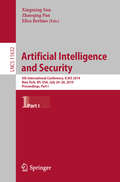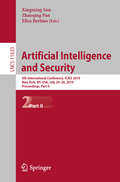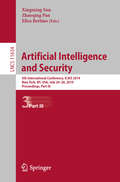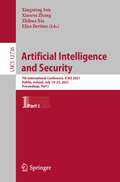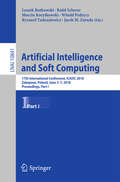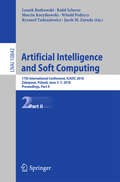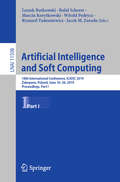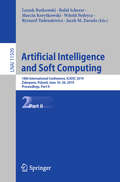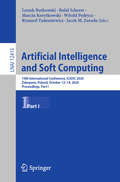- Table View
- List View
Artifacts of An Ex
by Jennifer ChenIn the tradition of Jenny Han and Emma Lord, Jennifer Chen’s Artifacts of an Ex is a story of love, art, and finding your way when everything you know has changed completely.When Chloe Chang gets dumped via USPS after moving across the county from NYC to LA, her first instinct is to throw her box of memories in the garbage. Instead, she starts buying other teenagers’ break-up boxes to create an art exhibit, Heartifacts. Opening night is going great, until she spots Daniel Kwak illicitly filming his best friend’s reaction to his ex’s box. When she tries to stop him, an intense discussion ends up launching a creative partnership and friendship… and a major crush for Chloe.There’s just one problem: Daniel is dead set on not being another rebound.Five times he’s been the guy who makes the girls he’s dating realize they want to get back with their ex. And he refuses for there to be a sixth. She insists she’s over her ex, but when he shows up unexpectedly with his new girlfriend, it turns out Daniel was right. She isn’t ready for a new relationship.She throws herself into making Heartifacts successful, but flashy influencers threaten her original vision of the exhibit. To create the exhibit she’s always wanted, Chloe needs to go back to basics, learn to work with artists in a more collaborative way, and discover what love can be. Only then will she convince Daniel she’s truly ready for everything they could be to one another.
Artifacts of a '90s Kid: Humorous Musings and Observations for Every Millennial
by Alana HitchellShe reminds you what it was like to grow up during an era that consisted of playing countless hours of Nintendo, reading Lurlene McDaniel books, and wearing Esprit T-shirts and Yoyo jeans. With no real responsibilities to worry about, a typical day involved playing board games, eating junk food, and obsessing over the latest Lisa Frank stickers.Artifacts of a ’90s Kid is a candid, coming-of-age, humorous account of Alana’s experiences as a millennial growing up in Central Illinois. It focuses on her elementary and junior high school years (1992–1999) and includes present-day commentary. Alana offers up a hilarious compilation of diary entries, homework fails, notes, artwork, poetry, and awkward photos from her childhood—all that and a bag of chips!Although the handwriting and spelling can be atrocious at times, millennials will relate to Alana’s diary entries describing a very innocent, honest, and naive time when life was simple and carefree. Featuring many milestones of growing up—from making friends, to crushes, to being overly dramatic—along with some totally dope nineties references that every millennial is sure to enjoy.
Artifak: Cultural Revival, Tourism, and the Recrafting of History in Vanuatu
by Hugo DeBlockIn Vanuatu, commoditization and revitalization of culture and the arts do not necessarily work against each other; both revolve around value formation and the authentication of things. This book investigates the meaning and value of (art) objects as commodities in differing states of transit and transition: in the local place, on the market, in the museum. It provides an ethnographic account of commoditization in a context of revitalization of culture and the arts in Vanuatu, and the issues this generates, such as authentication of actions and things, indigenized copyright, and kastom disputes over ownership and the nature of kastom itself.
Artifak: Cultural Revival, Tourism, and the Recrafting of History in Vanuatu
by Hugo DeBlockIn Vanuatu, commoditization and revitalization of culture and the arts do not necessarily work against each other; both revolve around value formation and the authentication of things. This book investigates the meaning and value of (art) objects as commodities in differing states of transit and transition: in the local place, on the market, in the museum. It provides an ethnographic account of commoditization in a context of revitalization of culture and the arts in Vanuatu, and the issues this generates, such as authentication of actions and things, indigenized copyright, and kastom disputes over ownership and the nature of kastom itself.
Artificial General Intelligence: 11th International Conference, AGI 2018, Prague, Czech Republic, August 22-25, 2018, Proceedings (Lecture Notes in Computer Science #10999)
by Ben Goertzel Matthew Iklé Arthur Franz Rafal RzepkaThis book constitutes the proceedings of the 11th International Conference on Artificial General Intelligence, AGI 2018, held in Prague, Czech Republic, in August 2018. The 19 regular papers and 10 poster papers presented in this book were carefully reviewed and selected from 52 submissions. The conference encourage interdisciplinary research based on different understandings of intelligence, and exploring different approaches. As the AI field becomes increasingly commercialized and well accepted, maintaining and emphasizing a coherent focus on the AGI goals at the heart of the field remains more critical than ever.
Artificial Generation: Photogenic French Literature and the Prehistory of Cinematic Modernity
by Christina Parker-FlynnArtificial Generation: Photogenic French Literature and the Prehistory of Cinematic Modernity investigates the intersection of film theory and nineteenth-century literature, arguing that the depth of amalgamation that occurred within literary representation during this era aims to replicate an illusion of life and its sensations, in ways directly related to broader transitions into our modern cinematic age. A key part of this evolution in representation relies on the continual re-emergence of the artificial woman as longstanding expression of masculine artistic subjectivity, which, by the later nineteenth century, becomes a photographic and filmic drive. Moving through the beginning of film history, from Georges Méliès and other “silent” filmmakers in the 1890s, into more contemporary movies, including Alfred Hitchcock’s Vertigo (1958) and Blade Runner 2049 (2017), the book analyzes how films are often structured around the prior century’s mythic and literary principles, which now serve as foundation for film as medium—a phantom form for life’s re-presentation. Artificial Generation provides a crucial reassessment of the longstanding, mutual exchange between cinematic and literary reproduction, offering an innovative perspective on the proto-cinematic imperative of simulation within nineteenth-century literary symbolism.
Artificial Hells
by Claire BishopSince the 1990s, critics and curators have broadly accepted the notion that participatory art is the ultimate political art: that by encouraging an audience to take part an artist can promote new emancipatory social relations. Around the world, the champions of this form of expression are numerous, ranging from art historians such as Grant Kester, curators such as Nicolas Bourriaud and Nato Thompson, to performance theorists such as Shannon Jackson.Artificial Hells is the first historical and theoretical overview of socially engaged participatory art, known in the US as "social practice." Claire Bishop follows the trajectory of twentieth-century art and examines key moments in the development of a participatory aesthetic. This itinerary takes in Futurism and Dada; the Situationist International; Happenings in Eastern Europe, Argentina and Paris; the 1970s Community Arts Movement; and the Artists Placement Group. It concludes with a discussion of long-term educational projects by contemporary artists such as Thomas Hirschhorn, Tania Bruguera, Pawe? Althamer and Paul Chan.Since her controversial essay in Artforum in 2006, Claire Bishop has been one of the few to challenge the political and aesthetic ambitions of participatory art. In Artificial Hells, she not only scrutinizes the emancipatory claims made for these projects, but also provides an alternative to the ethical (rather than artistic) criteria invited by such artworks. Artificial Hells calls for a less prescriptive approach to art and politics, and for more compelling, troubling and bolder forms of participatory art and criticism.
Artificial Intelligence Algorithms and Applications: 11th International Symposium, ISICA 2019, Guangzhou, China, November 16–17, 2019, Revised Selected Papers (Communications in Computer and Information Science #1205)
by Wei Li Yong Liu Kangshun Li Hui WangThis book constitutes the thoroughly refereed proceedings of the 11th International Symposium on Intelligence Computation and Applications, ISICA 2019, held in Guangzhou, China, in November 2019.The 65 papers presented were carefully reviewed and selected from the total of 112 submissions. This volume features the most up-to-date research in evolutionary algorithms, parallel computing and quantum computing, evolutionary multi-objective and dynamic optimization, intelligent multimedia systems, virtualization and AI applications, smart scheduling, intelligent control, big data and cloud computing, deep learning, and hybrid machine learning systems.The papers are organized according to the following topical sections: new frontier in evolutionary algorithms; evolutionary multi-objective and dynamic optimization; intelligent multimedia systems; virtualization and AI applications; smart scheduling; intelligent control; big data and cloud computing; statistical learning.
Artificial Intelligence Applications and Innovations. AIAI 2020 IFIP WG 12.5 International Workshops: MHDW 2020 and 5G-PINE 2020, Neos Marmaras, Greece, June 5–7, 2020, Proceedings (IFIP Advances in Information and Communication Technology #585)
by Elias Pimenidis Lazaros Iliadis Ilias MaglogiannisThis book constitutes the refereed proceedings of two International Workshops held as parallel events of the 16th IFIP WG 12.5 International Conference on Artificial Intelligence Applications and Innovations, AIAI 2020, in Neos Marmaras, Greece, in June 2020: the 9th Mining Humanistic Data Workshop, MHDW 2020, and the 5th Workshop on 5G-Putting Intelligence to the Network Edge, 5G-PINE 2020.* The 6 full papers and 3 short papers presented at MHDW 2020 were carefully reviewed and selected from 16 submissions; out of the 23 papers submitted to 5G-PINE 2020, 11 were accepted as full papers and 1 as a short paper. The MHDW papers focus on topics such as recommendation systems, sentiment analysis, pattern recognition, data mining, and time series. The papers presented at 5G-PINE focus on the latest AI applications in the telecommunication industry and deal with topics such as the Internet of Things, intelligence fusion in 5G networks, and 5G media.*The workshops were held virtually due to the COVID-19 pandemic.
Artificial Intelligence Applications and Innovations: 15th IFIP WG 12.5 International Conference, AIAI 2019, Hersonissos, Crete, Greece, May 24–26, 2019, Proceedings (IFIP Advances in Information and Communication Technology #559)
by Elias Pimenidis Lazaros Iliadis Ilias Maglogiannis John MacIntyreThis book constitutes the refereed proceedings of the 15th IFIP WG 12.5 International Conference on Artificial Intelligence Applications and Innovations, AIAI 2019, held in Hersonissos, Crete, Greece, in May 2019.The 49 full papers and 6 short papers presented were carefully reviewed and selected from 101 submissions. They cover a broad range of topics such as deep learning ANN; genetic algorithms - optimization; constraints modeling; ANN training algorithms; social media intelligent modeling; text mining/machine translation; fuzzy modeling; biomedical and bioinformatics algorithms and systems; feature selection; emotion recognition; hybrid Intelligent models; classification - pattern recognition; intelligent security modeling; complex stochastic games; unsupervised machine learning; ANN in industry; intelligent clustering; convolutional and recurrent ANN; recommender systems; intelligent telecommunications modeling; and intelligent hybrid systems using Internet of Things. The papers are organized in the following topical sections:AI anomaly detection - active learning; autonomous vehicles - aerial vehicles; biomedical AI; classification - clustering; constraint programming - brain inspired modeling; deep learning - convolutional ANN; fuzzy modeling; learning automata - logic based reasoning; machine learning - natural language; multi agent - IoT; nature inspired flight and robot; control - machine vision; and recommendation systems.
Artificial Intelligence Applications and Innovations: 17th IFIP WG 12.5 International Conference, AIAI 2021, Hersonissos, Crete, Greece, June 25–27, 2021, Proceedings (IFIP Advances in Information and Communication Technology #627)
by Lazaros Iliadis Ilias Maglogiannis John MacintyreThis book constitutes the refereed proceedings of the 17th IFIP WG 12.5 International Conference on Artificial Intelligence Applications and Innovations, AIAI 2021, held virtually and in Hersonissos, Crete, Greece, in June 2021.The 50 full papers and 11 short papers presented were carefully reviewed and selected from 113 submissions. They cover a broad range of topics related to technical, legal, and ethical aspects of artificial intelligence systems and their applications and are organized in the following sections: adaptive modeling/ neuroscience; AI in biomedical applications; AI impacts/ big data; automated machine learning; autonomous agents; clustering; convolutional NN; data mining/ word counts; deep learning; fuzzy modeling; hyperdimensional computing; Internet of Things/ Internet of energy; machine learning; multi-agent systems; natural language; recommendation systems; sentiment analysis; and smart blockchain applications/ cybersecurity. Chapter “Improving the Flexibility of Production Scheduling in Flat Steel Production Through Standard and AI-based Approaches: Challenges and Perspective” is available open access under a Creative Commons Attribution 4.0 International License via link.springer.com.
Artificial Intelligence Techniques for Satellite Image Analysis (Remote Sensing and Digital Image Processing #24)
by D. Jude HemanthThe main objective of this book is to provide a common platform for diverse concepts in satellite image processing. In particular it presents the state-of-the-art in Artificial Intelligence (AI) methodologies and shares findings that can be translated into real-time applications to benefit humankind. Interdisciplinary in its scope, the book will be of interest to both newcomers and experienced scientists working in the fields of satellite image processing, geo-engineering, remote sensing and Artificial Intelligence. It can be also used as a supplementary textbook for graduate students in various engineering branches related to image processing.
Artificial Intelligence and Machine Learning for Digital Pathology: State-of-the-Art and Future Challenges (Lecture Notes in Computer Science #12090)
by Andreas Holzinger Randy Goebel Michael Mengel Heimo MüllerData driven Artificial Intelligence (AI) and Machine Learning (ML) in digital pathology, radiology, and dermatology is very promising. In specific cases, for example, Deep Learning (DL), even exceeding human performance. However, in the context of medicine it is important for a human expert to verify the outcome. Consequently, there is a need for transparency and re-traceability of state-of-the-art solutions to make them usable for ethical responsible medical decision support. Moreover, big data is required for training, covering a wide spectrum of a variety of human diseases in different organ systems. These data sets must meet top-quality and regulatory criteria and must be well annotated for ML at patient-, sample-, and image-level. Here biobanks play a central and future role in providing large collections of high-quality, well-annotated samples and data. The main challenges are finding biobanks containing ‘‘fit-for-purpose’’ samples, providing quality related meta-data, gaining access to standardized medical data and annotations, and mass scanning of whole slides including efficient data management solutions.
Artificial Intelligence and Machine Learning: 31st Benelux AI Conference, BNAIC 2019, and 28th Belgian-Dutch Machine Learning Conference, BENELEARN 2019, Brussels, Belgium, November 6-8, 2019, Revised Selected Papers (Communications in Computer and Information Science #1196)
by Bart Bogaerts Gianluca Bontempi Pierre Geurts Nick Harley Bertrand Lebichot Tom Lenaerts Gilles LouppeThis book contains a selection of the best papers of the 31st Benelux Conference on Artificial Intelligence, BNAIC 2019, and 28th Belgian Dutch Machine Learning Conference, BENELEARN 2019, held in Brussels, Belgium in November 2019. The 11 papers presented in this volume were carefully reviewed and selected from 50 regular submissions. They address various aspects of artificial intelligence such as natural language processing, agent technology, game theory, problem solving, machine learning, human-agent interaction, AI and education, and data analysis.
Artificial Intelligence and Mobile Services – AIMS 2019: 8th International Conference, Held as Part of the Services Conference Federation, SCF 2019, San Diego, CA, USA, June 25–30, 2019, Proceedings (Lecture Notes in Computer Science #11516)
by Liang-Jie Zhang De WangThis book constitutes the proceedings of the 8th International Conference on Artificial Intelligence and Mobile Services, AIMS 2019, held as part of SCF 2019, in San Diego, CA, USA, in June 2019. The 12 full papers and one short paper presented were carefully reviewed and selected from 29 submissions. The papers cover different aspects of mobile services from business management to computing systems, algorithms and applications. They promote technological technological innovations in research and development of mobile services, including, but not limited to, wireless and sensor networks, mobile and wearable computing, mobile enterprise and eCommerce, ubiquitous collaborative and social services, machine-to-machine and Internet-of-things, clouds, cyber-physical integration, and big data analytics for mobility-enabled services.
Artificial Intelligence and Mobile Services – AIMS 2020: 9th International Conference, Held as Part of the Services Conference Federation, SCF 2020, Honolulu, HI, USA, September 18-20, 2020, Proceedings (Lecture Notes in Computer Science #12401)
by Liang-Jie Zhang Ruifeng Xu Wang De Wei Zhong Ling Tian Yongsheng BaiThis book constitutes the proceedings of the 9th International Conference on Artificial Intelligence and Mobile Services, AIMS 2020, held as part of SCF 2020, during September 18-20, 2020. The conference was planned to take place in Honolulu, HI, USA and was changed to a virtual format due to the COVID-19 pandemic. The 11 full and 2 short papers presented were carefully reviewed and selected from 42 submissions. They cover topics in AI Modeling, AI Analysis, AI and Mobile Applications, AI Architecture, AI Management, AI Engineering, Mobile backend as a service (MBaaS), User experience of AI and mobile services.
Artificial Intelligence and Security: 5th International Conference, ICAIS 2019, New York, NY, USA, July 26-28, 2019, Proceedings, Part I (Lecture Notes in Computer Science #11632)
by Elisa Bertino Xingming Sun Zhaoqing PanThe 4-volume set LNCS 11632 until LNCS 11635 constitutes the refereed proceedings of the 5th International Conference on Artificial Intelligence and Security, ICAIS 2019, which was held in New York, USA, in July 2019. The conference was formerly called “International Conference on Cloud Computing and Security” with the acronym ICCCS.The total of 230 full papers presented in this 4-volume proceedings was carefully reviewed and selected from 1529 submissions. The papers were organized in topical sections as follows: Part I: cloud computing; Part II: artificial intelligence; big data; and cloud computing and security; Part III: cloud computing and security; information hiding; IoT security; multimedia forensics; and encryption and cybersecurity; Part IV: encryption and cybersecurity.
Artificial Intelligence and Security: 5th International Conference, ICAIS 2019, New York, NY, USA, July 26-28, 2019, Proceedings, Part II (Lecture Notes in Computer Science #11633)
by Elisa Bertino Xingming Sun Zhaoqing PanThe 4-volume set LNCS 11632 until LNCS 11635 constitutes the refereed proceedings of the 5th International Conference on Artificial Intelligence and Security, ICAIS 2019, which was held in New York, USA, in July 2019. The conference was formerly called “International Conference on Cloud Computing and Security” with the acronym ICCCS.The total of 230 full papers presented in this 4-volume proceedings was carefully reviewed and selected from 1529 submissions. The papers were organized in topical sections as follows: Part I: cloud computing; Part II: artificial intelligence; big data; and cloud computing and security; Part III: cloud computing and security; information hiding; IoT security; multimedia forensics; and encryption and cybersecurity; Part IV: encryption and cybersecurity.
Artificial Intelligence and Security: 5th International Conference, ICAIS 2019, New York, NY, USA, July 26–28, 2019, Proceedings, Part III (Lecture Notes in Computer Science #11634)
by Elisa Bertino Xingming Sun Zhaoqing PanThe 4-volume set LNCS 11632 until LNCS 11635 constitutes the refereed proceedings of the 5th International Conference on Artificial Intelligence and Security, ICAIS 2019, which was held in New York, USA, in July 2019. The conference was formerly called “International Conference on Cloud Computing and Security” with the acronym ICCCS.The total of 230 full papers presented in this 4-volume proceedings was carefully reviewed and selected from 1529 submissions. The papers were organized in topical sections as follows: Part I: cloud computing; Part II: artificial intelligence; big data; and cloud computing and security; Part III: cloud computing and security; information hiding; IoT security; multimedia forensics; and encryption and cybersecurity; Part IV: encryption and cybersecurity.
Artificial Intelligence and Security: 7th International Conference, ICAIS 2021, Dublin, Ireland, July 19–23, 2021, Proceedings, Part I (Lecture Notes in Computer Science #12736)
by Elisa Bertino Xingming Sun Xiaorui Zhang Zhihua XiaThis two-volume set of LNCS 12736-12737 constitutes the refereed proceedings of the 7th International Conference on Artificial Intelligence and Security, ICAIS 2021, which was held in Dublin, Ireland, in July 2021. The conference was formerly called “International Conference on Cloud Computing and Security” with the acronym ICCCS.The total of 93 full papers and 29 short papers presented in this two-volume proceedings was carefully reviewed and selected from 1013 submissions. Overall, a total of 224 full and 81 short papers were accepted for ICAIS 2021; the other accepted papers are presented in CCIS 1422-1424. The papers were organized in topical sections as follows: Part I: Artificial intelligence; and big data Part II: Big data; cloud computing and security; encryption and cybersecurity; information hiding; IoT security; and multimedia forensics
Artificial Intelligence and Soft Computing: 17th International Conference, ICAISC 2018, Zakopane, Poland, June 3-7, 2018, Proceedings, Part I (Lecture Notes in Computer Science #10841)
by Witold Pedrycz Leszek Rutkowski Marcin Korytkowski Rafał Scherer Ryszard Tadeusiewicz Jacek M. ZuradaThe two-volume set LNAI 10841 and LNAI 10842 constitutes the refereed proceedings of the 17th International Conference on Artificial Intelligence and Soft Computing, ICAISC 2018, held in Zakopane, Poland in June 2018. The 140 revised full papers presented were carefully reviewed and selected from 242 submissions. The papers included in the first volume are organized in the following three parts: neural networks and their applications; evolutionary algorithms and their applications; and pattern classification.
Artificial Intelligence and Soft Computing: 17th International Conference, ICAISC 2018, Zakopane, Poland, June 3-7, 2018, Proceedings, Part II (Lecture Notes in Computer Science #10842)
by Witold Pedrycz Leszek Rutkowski Marcin Korytkowski Rafał Scherer Ryszard Tadeusiewicz Jacek M. ZuradaThe two-volume set LNAI 10841 and LNAI 10842 constitutes the refereed proceedings of the 17th International Conference on Artificial Intelligence and Soft Computing, ICAISC 2018, held in Zakopane, Poland in June 2018. The 140 revised full papers presented were carefully reviewed and selected from 242 submissions. The papers included in the second volume are organized in the following five parts: computer vision, image and speech analysis; bioinformatics, biometrics, and medical applications; data mining; artificial intelligence in modeling, simulation and control; and various problems of artificial intelligence.
Artificial Intelligence and Soft Computing: 18th International Conference, ICAISC 2019, Zakopane, Poland, June 16–20, 2019, Proceedings, Part I (Lecture Notes in Computer Science #11508)
by Witold Pedrycz Leszek Rutkowski Marcin Korytkowski Rafał Scherer Ryszard Tadeusiewicz Jacek M. ZuradaThe two-volume set LNCS 11508 and 11509 constitutes the refereed proceedings of of the 18th International Conference on Artificial Intelligence and Soft Computing, ICAISC 2019, held in Zakopane, Poland, in June 2019. The 122 revised full papers presented were carefully reviewed and selected from 333 submissions. The papers included in the first volume are organized in the following five parts: neural networks and their applications; fuzzy systems and their applications; evolutionary algorithms and their applications; pattern classification; artificial intelligence in modeling and simulation. The papers included in the second volume are organized in the following five parts: computer vision, image and speech analysis; bioinformatics, biometrics, and medical applications; data mining; various problems of artificial intelligence; agent systems, robotics and control.
Artificial Intelligence and Soft Computing: 18th International Conference, ICAISC 2019, Zakopane, Poland, June 16–20, 2019, Proceedings, Part II (Lecture Notes in Computer Science #11509)
by Witold Pedrycz Leszek Rutkowski Marcin Korytkowski Rafał Scherer Ryszard Tadeusiewicz Jacek M. ZuradaThe two-volume set LNCS 11508 and 11509 constitutes the refereed proceedings of of the 18th International Conference on Artificial Intelligence and Soft Computing, ICAISC 2019, held in Zakopane, Poland, in June 2019. The 122 revised full papers presented were carefully reviewed and selected from 333 submissions. The papers included in the first volume are organized in the following five parts: neural networks and their applications; fuzzy systems and their applications; evolutionary algorithms and their applications; pattern classification; artificial intelligence in modeling and simulation. The papers included in the second volume are organized in the following five parts: computer vision, image and speech analysis; bioinformatics, biometrics, and medical applications; data mining; various problems of artificial intelligence; agent systems, robotics and control.
Artificial Intelligence and Soft Computing: 19th International Conference, ICAISC 2020, Zakopane, Poland, October 12-14, 2020, Proceedings, Part I (Lecture Notes in Computer Science #12415)
by Witold Pedrycz Leszek Rutkowski Marcin Korytkowski Rafał Scherer Ryszard Tadeusiewicz Jacek M. ZuradaThe two-volume set LNCS 12415 and 12416 constitutes the refereed proceedings of of the 19th International Conference on Artificial Intelligence and Soft Computing, ICAISC 2020, held in Zakopane, Poland*, in October 2020.The 112 revised full papers presented were carefully reviewed and selected from 265 submissions. The papers included in the first volume are organized in the following six parts: neural networks and their applications; fuzzy systems and their applications; evolutionary algorithms and their applications; pattern classification; bioinformatics, biometrics and medical applications; artificial intelligence in modeling and simulation.The papers included in the second volume are organized in the following four parts: computer vision, image and speech analysis; data mining; various problems of artificial intelligence; agent systems, robotics and control.*The conference was held virtually due to the COVID-19 pandemic.

